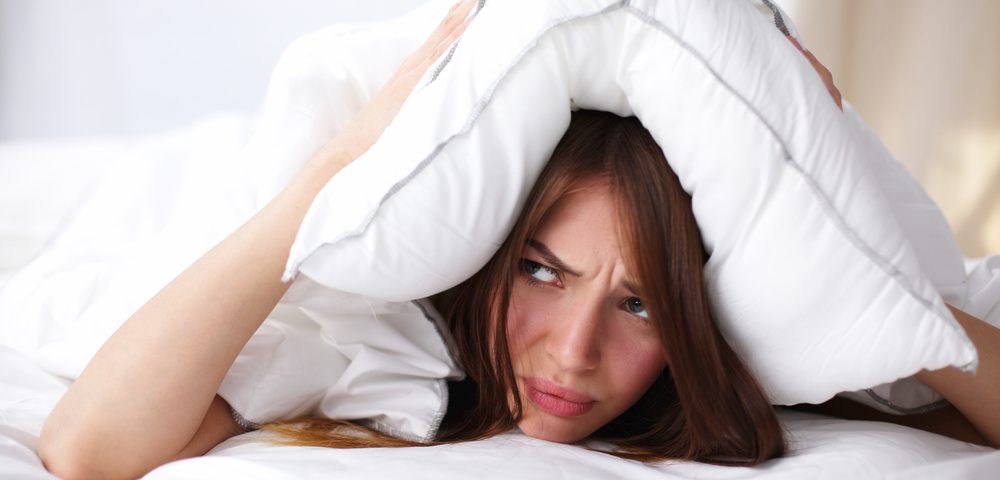Not being able to sleep is rough, when you’re tossing and turning, staring at the ceiling, failing to count sheep. … It’s not fun and everyone experiences it from time to time.
Just to set things straight, insomnia is not a disease, but rather a symptom. By definition, it’s the inability to fall asleep and/or stay asleep for very long for more than three-four weeks. I call it long nights and endless days. If this goes on too long, getting checked out may be a good idea to try to figure out why you’re suffering from it.
What are the causes?
The cause of insomnia breaks down into just a few categories. These factors typically are the root cause: physical (medical) ailments, psychological reasons, and lifestyle.
Medical causes
Many medical conditions cause your body to have trouble sleeping. Pain is the No. 1 medical problem to keep you up at night. It’s almost always impossible to find a comfortable position when you’re hurting. Especially when the pain is due to having procedures and surgeries.
Other medical conditions include:
- Breathing issues, such as asthma, COPD
- Chronic pain
- Heart problems including angina (chest pain)
- Stomach issues, such as acid reflux and inflammatory bowel disease.
Often medications taken for these medical conditions can have side effects including insomnia. Finally, both medical procedures and surgeries become possible culprits.
Psychological factors
Stress, anxiety, depression, and personality disorders all fall under the psychological factors for insomnia. When things become overwhelming in your daily routine, sometimes it’s hard for your brain to turn off. Tossing and turning while lying in bed from worry or emotionally upsetting events definitely will keep you up at night.
Anticipation of events can cause anxiety. It’s hard not to focus on big events beforehand. Uncertainty and the unknown will make your mind wander, thinking of every scenario. Also, the loss of loved ones causes pain, not physically, but emotionally.
Lifestyle causes
There are times when the inability to sleep is not medical or emotional, but something we may be doing. Lifestyle causes include:
- Keeping electronics active close to the time you plan on sleeping. This includes TVs, music, and cellphones.
- Consuming drinks or foods that stimulate the body. Did you drink alcohol or caffeine products? That will keep your mind and body active for hours after consuming it.
What can be done to help remedy the elusive sleep?
You don’t need to seek professional help right away. Thankfully, there are at-home steps you can try before heading off to see your doctor.
Try lifestyle changes
If you believe the problem is lifestyle choices, take a look at what your routine includes.
- It’s been advised not to eat or drink caffeine for at least two hours before bedtime.
- Turn off all electronics in your room. The fewer distractions, the more likely your body can relax enough to drift to sleep.
- Set a sleeping schedule and stick to it! Your body eventually will fall into a routine of sleeping when it’s needed and appropriate. There is actually something called a biological alarm clock, known as circadian rhythms. Once your body becomes in sync and starts to fall asleep and wake up on a schedule, eventually you’ll have an internal clock. That will make it much easier to fall asleep and wake up when you’re supposed to.
What if the cause is medical?
There are over-the-counter and holistic options, but check with your doctor first. Antihistamines and melatonin are the two most popular over-the-counter remedies.
If stress is a problem, you might try some relaxing exercises.
- Deep breathing or meditation
- Positive self-talk. Don’t dwell on the stressful events of the day.
- Sometimes putting some soothing music on helps.
When home remedies fail to help, you should see your doctor because there could be something medically wrong causing the inability to sleep. Once your doctor identifies the root of the problem, proper steps can be taken to remedy it. Doctors can prescribe effective sleep medications to help you fall asleep. Your doctor also can go through your list of medications to see if the side effects are causing a lack of sleep.
If your problem is that Crohn’s symptoms are keeping you up, get with your gastroenterologist. Almost all Crohnie’s suffer from insomnia at some point. Doctors may have better options than sleeping pills, such as remedying those stomach issues keeping you up. It’s hard to lie down when you’re having stomach cramping, bloating, nausea, and an urgency to get to that restroom.
Rest is important for the body. Without a proper amount of sleep, your body just can’t function correctly. Sleeping regularly keeps the body healthier.
***
Note: IBD News Today is strictly a news and information website about the disease. It does not provide medical advice, diagnosis, or treatment. This content is not intended to be a substitute for professional medical advice, diagnosis, or treatment. Always seek the advice of your physician or other qualified health provider with any questions you may have regarding a medical condition. Never disregard professional medical advice or delay in seeking it because of something you have read on this website. The opinions expressed in this column are not those of IBD News Today, or its parent company, BioNews Services, and are intended to spark discussion about issues pertaining to IBD.


